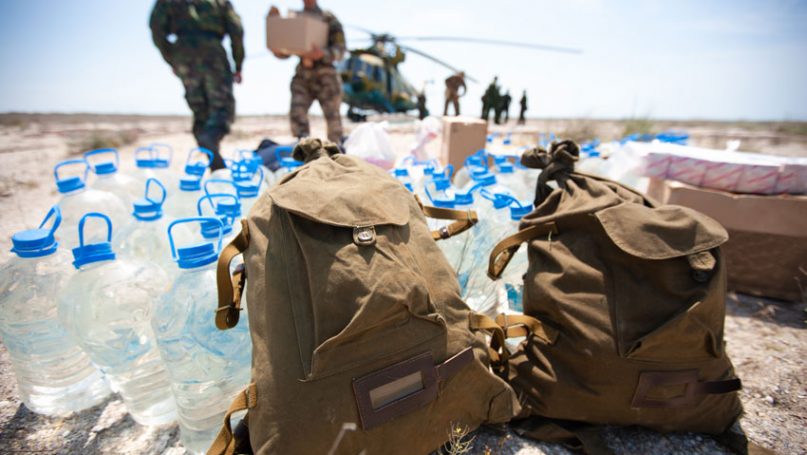Blogs
The Role of NGOs in War Zones- Why Their Work Matters

The role of NGOs in war zones is not to replace governments but to step in when no one else can. In Syria, Iraq, and other crisis zones, NGOs have become lifelines for people who can’t wait for systems to recover. These organizations respond to urgent needs like food, medicine, and shelter but also stay to rebuild what war has destroyed.
At Aramea Foundation, we’ve seen firsthand what this work requires. It means showing up when roads are blocked, when power is down, and when families have lost everything. To understand what’s really happening on the ground, you need to understand the NGOs’ role in war zones, not as outsiders, but as partners in survival and recovery.
Why NGOs Step In
In active conflicts, public services disappear. There’s no functioning water system. Hospitals are overwhelmed or destroyed. Schools close indefinitely. In this state, people who rely on these public systems become helpless. The role of NGOs in war zones begins the moment those systems fail. They bring emergency supplies, set up mobile health units, and help coordinate local relief networks.
Syria is one of the clearest examples. For years, NGOs have delivered food, winter kits, and temporary housing in areas where civilians had no other options. At the Aramea Foundation, we focus not only on providing physical aid but also on offering education and emotional support to displaced families.
Risk on the Ground
Working in war zones comes with danger. NGOs face armed checkpoints, restricted access, and the constant risk of attack. But even with these threats, many groups keep going. Why? Because the people still living in those zones don’t have the luxury of leaving. They’re the ones who need help the most.
Aramea Foundation has faced these challenges in its support for Syrian communities. Whether it’s delivering winter supplies or helping displaced families resettle, we’ve seen how critical it is to be present, not just after the dust settles but while it’s still in the air.
What Makes the Work Different?
The work of NGOs in war zones isn’t the same as working in stable countries. It demands flexibility, fast decisions, and partnerships with local actors. You can’t always rely on a plan. You have to listen, adjust, and act with care.
What sets us apart is that we’re not just responding. We’re building. We support long-term recovery while meeting urgent needs. We see families who need food today and students who want to finish school tomorrow. That’s why our work includes both emergency relief and sustained education programs for Syrian refugees.
How You Fit Into This?
If you’ve ever wondered whether donations make a difference, the answer is yes, especially in war zones. The money you give helps pay for fuel, transport, security, and supplies that reach places most can’t access. It helps local staff stay on the ground. It helps children keep learning in a world that’s falling apart.
Your support allows NGOs like the Aramea Foundation to keep going. Without donors, there’s no medicine, no classes, and no safe water in some of these areas. That’s why every act, big or small, matters.
Conclusion
The role of NGOs in war zones is not just about bringing help. It’s about staying when others leave. It’s about rebuilding one life at a time, even in the middle of chaos. Aramea Foundation plays this role every day, alongside others who refuse to turn away from conflict zones. If you want to make a difference, start by learning what this work truly means and who it’s really for.
